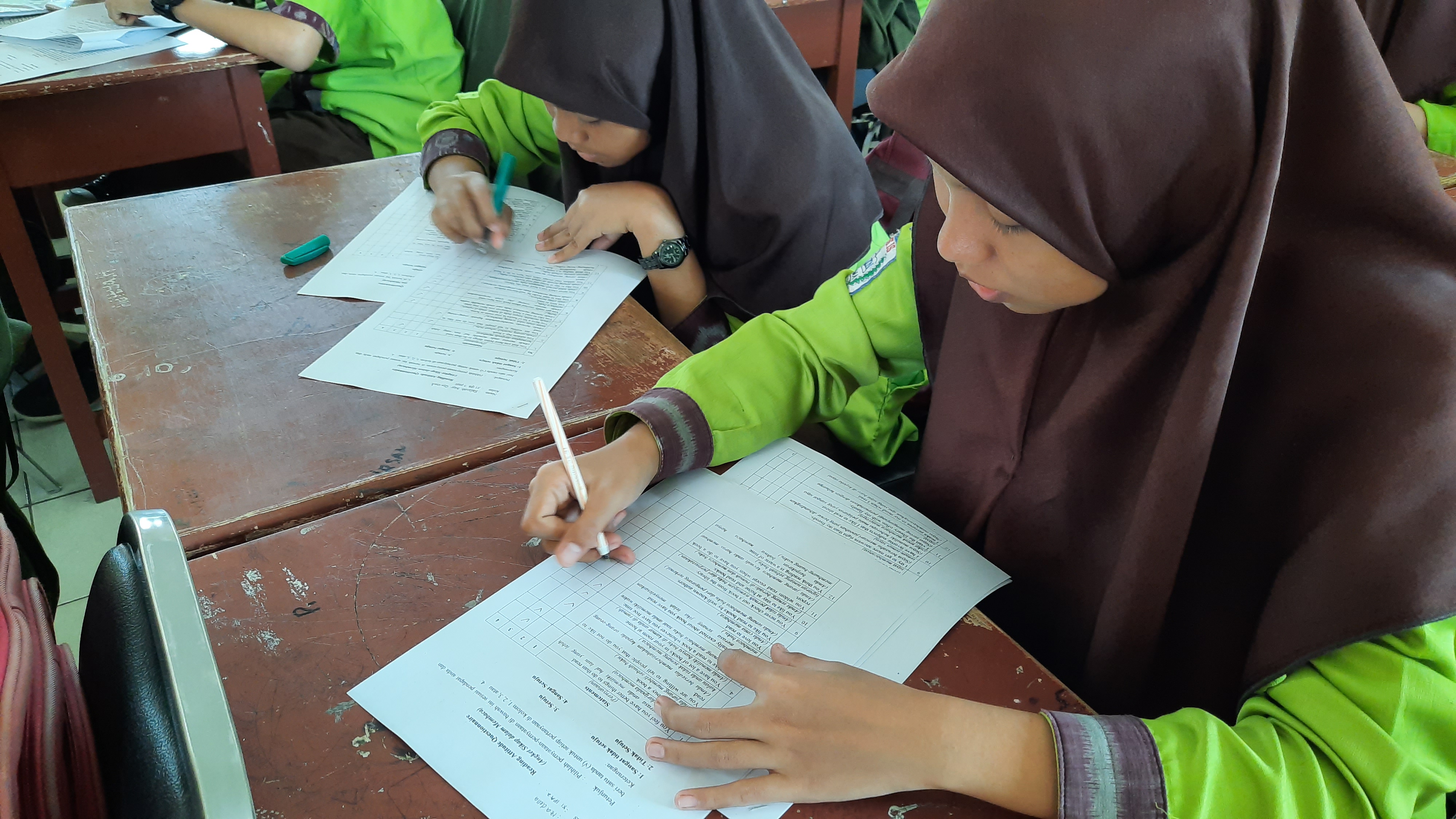Reading and its relationships among attitude, motivation, and comprehension achievement in upper secondary school students
DOI:
https://doi.org/10.21070/jees.v6i1.751Keywords:
correlation, reading attitude, reading motivation, reading comprehension achievementAbstract
Reading is essential in every subject. Reading also has a relationship with the students' achievement. This study is aimed to investigate whether or not there is (1) a significant correlation between reading attitude and reading comprehension achievement, (2) a significant correlation between reading motivation and reading comprehension achievement, (3) a significant correlation between reading attitude and reading motivation, and (4) any correlation between predictor variables and the criterion variable. The study was a correlational study with Pearson-product moment correlation. The sample of this study were 95 eleventh graders of upper secondary school. Cluster random sampling technique is used in this study. Questionnaires of reading attitude, reading motivation, and reading comprehension tests are given. The questionnaire result reveals that the reading attitude was negative, and reading motivation is medium. Furthermore, the results show that reading attitude and reading comprehension has a significant correlation. Reading motivation and reading comprehension also has a significant correlation. The roles of students, parents and teachers must work suitably in order to construct the positive reading atmosphere, thus they could achieve the better achievement in reading even for all subjects.
HIGHLIGHTS:
- The supports from family in motivating the children to be a good reader could build the positive attitude toward reading.
- Reading motivation can lead to the improvement in language learning performance.
- The learners who tend to read simple English texts can be said as the learners who were lacking English reading experiences.
Downloads
References
Fraenkel, J.R., & Wallen, N. E. (2012). How to design and evaluate research in education. (8th ed.). Boston: McGraw Hill
Gorard, S., See, B. H., & Davies, P. (2011). Do attitudes and aspirations matter in education?: A review of the research evidence. Saarbrucken: Lambert Academic Publishing.
Grabe, W., & Stoller, F.L. (2001). Reading for academic purpose: Guidelines for ESL/EFL teachers. In: M. Celce-Murcia (Ed.), Teaching English as a second or foreign language (pp. 187-203). Boston: Heincle & Heincle.
Hamra, A., & Syatriana, E. (2010). Developing a model of teaching reading comprehension for ESL students. TEFLIN Journal, 21(1), 27-40. DOI: http://dx.doi.org/10.15639/teflinjournal.v21i1/27-40
Li, H., & Wilhelm, K. H. (2008). Exploring pedagogical reasoning: Reading strategy instruction from two teachers’ perspectives. The Reading Matrix, 8(1), 96-110.
Matthewson, G. C. (2004). Model of attitude influence upon reading and learning to read, in R. B. Ruddell & NJ. Unrau (eds.), Theoritical Models and Processes of Reading. International Reading Association, Newark, DE.
McMillan, J. H., & Schumacher, S. (2010). Research in education: Evidence based inquiry (7th ed.). Englewood Cliffs, NJ: Pearson Education.
Tullock, R., Regina. S. & Estill, L. (1980) An assessment of University students’ attitudes toward Foreign Language
Tunnel, Carder, Justen & Pahub. (1991). Correlates of reading achievement and attitude: a national assessment study. Journal of education research, 78(5), 159-167.
Wigfield, A. & Guthrie, J.T. (1997). Relations of children’s motivation for reading to the amount and breadth of their reading. Journal of Educational Psychology, 89, 420-432.
Yumei, J. (2009). Motivation and its relationship with reading achievement in an urban middle school. The Journal of Educational Research. 100(4), 81-101

Published
How to Cite
Issue
Section
License
Copyright (c) 2021 Fatimah Tisa, Sofendi , Eryansyah

This work is licensed under a Creative Commons Attribution 4.0 International License.







